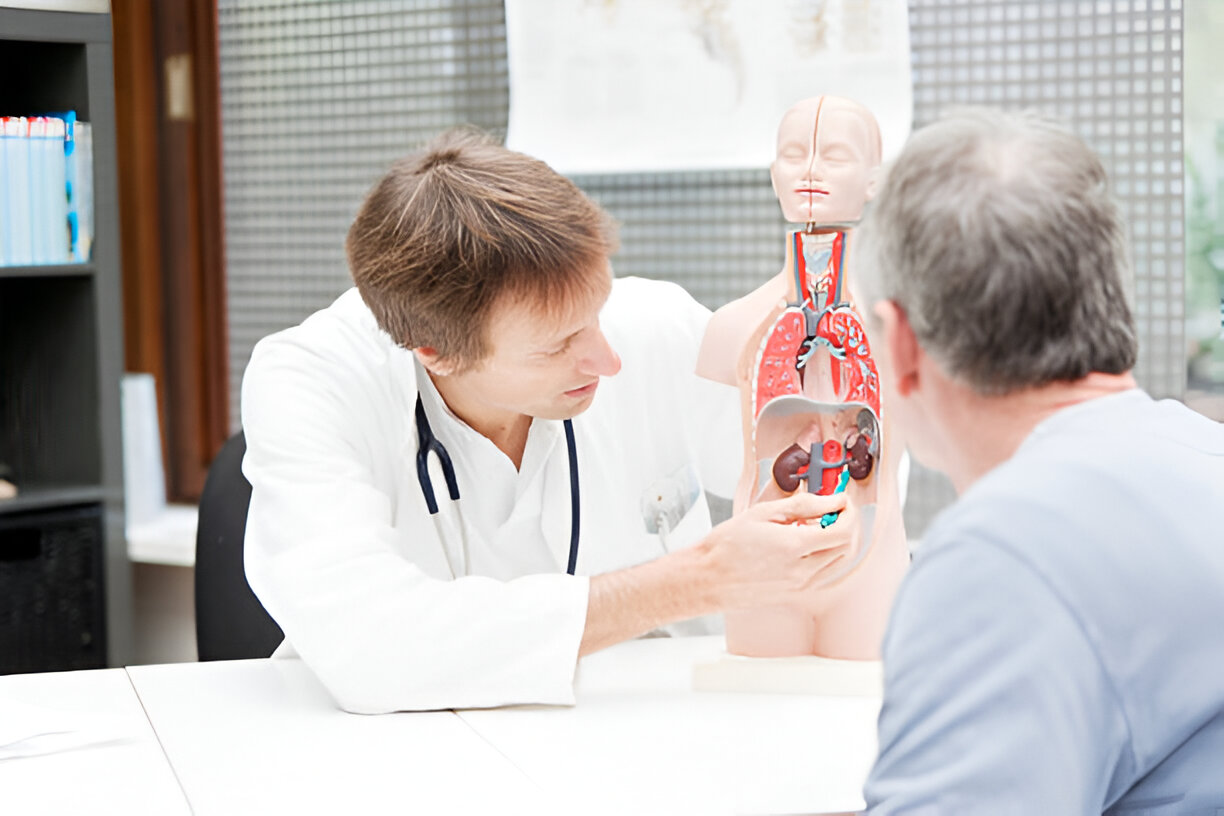Visit Time
Dr. Debabrata Sabat is available for consultations during the following hours:
Monday - Friday
8:00 - 4:00

Men’s Urological Health: What Every Man Should Know After 40
Turning 40 is a major milestone in a man’s life. It’s often a time of reflection, growth, and new priorities, including health. While many men focus on diet and fitness at this stage, one critical aspect that often gets overlooked is urological health.
From urinary habits to prostate health, your body starts to undergo changes in your 40s that deserve attention. Here's what every man should know to stay ahead of potential urological issues.
1. Prostate Health Becomes a Priority
The prostate, a walnut-sized gland that plays a key role in male reproductive function, grows with age. This natural enlargement can lead to a condition called Benign Prostatic Hyperplasia (BPH), causing symptoms like:
- Frequent urination, especially at night
- A weak urine stream
- Difficulty starting or stopping urination
While BPH isn’t cancerous, the symptoms can significantly impact your quality of life. Regular screenings and open conversations with a urologist can help detect any abnormalities early, including prostate cancer, which becomes more common with age.
2. Erectile Dysfunction Is More Common Than You Think
Many men in their 40s experience occasional or persistent erectile dysfunction (ED). While often assumed to be purely psychological, ED can be a sign of underlying issues like:
- Poor blood circulation
- Diabetes
- High blood pressure
- Low testosterone levels
The good news? ED is treatable. Modern medicine offers a range of effective solutions — from lifestyle changes to medication and advanced therapies.
3. Pay Attention to Urinary Health
Changes in urination habits should never be ignored. Urinary tract infections (UTIs), bladder issues, or even kidney stones can present with symptoms like burning during urination, cloudy or foul-smelling urine, and pelvic pain.
If you notice blood in your urine (hematuria), don’t delay. Even if painless, it could indicate something serious, from infection to bladder or kidney cancer.
4. Fertility and Hormonal Changes
Though fertility doesn't decline as sharply in men as in women, sperm quality and testosterone levels can start to drop after 40. This may lead to symptoms like fatigue, mood swings, reduced libido, or even weight gain.
Routine blood tests can check for hormonal imbalances. If needed, your urologist can recommend lifestyle adjustments or hormone replacement therapy (HRT).
5. Preventive Screenings Save Lives
Many urological conditions can be managed effectively — or even reversed — if caught early. Men over 40 should consider:
- Annual prostate exams
- Testicular self-exams
- Urine and blood tests
- Ultrasounds if symptomatic
Don’t wait for symptoms to appear. Make preventive screenings a regular part of your health check-ups.
“Urological health is a silent cornerstone of a man’s overall well-being. Awareness now can prevent problems later.”
Conclusion
Your 40s can be the healthiest decade yet, with the right awareness. Urological health is a crucial part of overall well-being for men. Don’t let embarrassment or neglect stand in the way of a healthy, active life.